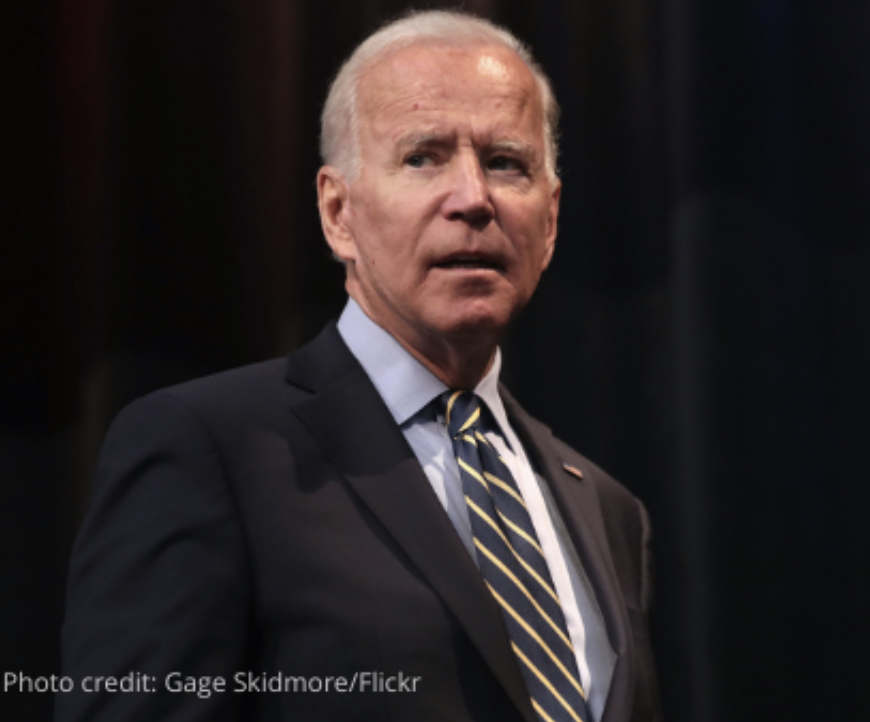KEY POINTS
DURING THE PAST YEAR:
- Overall electricity prices rose 8 percent
- Industrial electricity prices rose 15 percent
- Home heating oil prices increased by 43 percent
- Oil prices rose 60 percent
- Natural gas prices surged by 61 percent
- The price of gasoline rose 98 cents per gallon, about 42 percent
Energy prices are skyrocketing under President Joe Biden’s radical energy and climate agenda. The latest official government data show large year-over-year price hikes for all forms of energy. During the past year, overall electricity prices rose 8 percent,[1] industrial energy prices increased by 15 percent,[2] home heating oil prices rose 43 percent,[3] conventional oil prices surged by 60 percent,[4]natural gas prices increased by 61 percent,[5] and gasoline prices rose nearly $1 per gallon.[6]
Average Household Paid $1,000 or More in Additional Energy Costs
The average U.S. household in 2021 spent an extra $600 in higher gasoline costs and $70 in higher electricity costs. Further, households that use natural gas spent an extra $300, on average, and those using home heating oil paid $1,000 more. Cumulatively, the average American household paid about $1,000 in higher energy costs in 2021 compared to 2020. It’s also important to note that these higher energy prices have been baked into the costs for all goods and services bought and sold in the economy, contributing to across-the-board inflation. With those costs in mind, it’s clear the Biden administration’s disastrous energy and climate policies cost the average U.S. household—directly or indirectly—much more than $1,000 over the past year.
Predictable Result of Biden’s Radical Energy and Climate Policies
Rapidly rising energy prices are no accident. They are the predictable result of Joe Biden’s war on affordable energy. There are dozens of actions the Biden administration has taken that have increased energy costs, including the following notable policies:
- Canceling the Keystone XL pipeline
- Restricting drilling in parts of the Arctic Ocean, Bering Sea, and federal lands
- Placing a moratorium on new oil and gas leases on federal land
- Rescinding energy production leases in the Arctic National Wildlife Refuge
- Plans to close nearly half of the National Petroleum Reserve in Alaska
- Stringent new regulations on methane emissions from oil and gas production
- Classifying residual water from oil and gas drilling as toxic waste
- Considering hiking royalties paid to the federal government by fossil-fuel companies
[1] U.S. Energy Information Administration, “Electric Power Monthly,” eia.gov, January 2022, https://www.eia.gov/electricity/monthly/current_month/january2022.pdf
[2] Ibid.
[3] Ibid.
[4] U.S. Energy Information Administration, “Cushing, OK WTI Spot Price FOB,” eia.gov, accessed February 4, 2022, https://www.eia.gov/dnav/pet/hist/LeafHandler.ashx?n=PET&s=RWTC&f=M
[5] U.S. Energy Information Administration, “Henry Hub Natural Gas Spot Price,” eia.gov, accessed February 4, 2022, https://www.eia.gov/dnav/ng/hist/rngwhhdm.htm
[6] U.S. Energy Information Administration, “U.S. Regular All Formulations Retail Gas Prices,” eia.gov, accessed February 4, 2022, https://www.eia.gov/dnav/pet/hist/LeafHandler.ashx?n=pet&s=emm_epmr_pte_nus_dpg&f=m
Download


